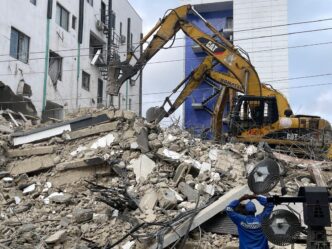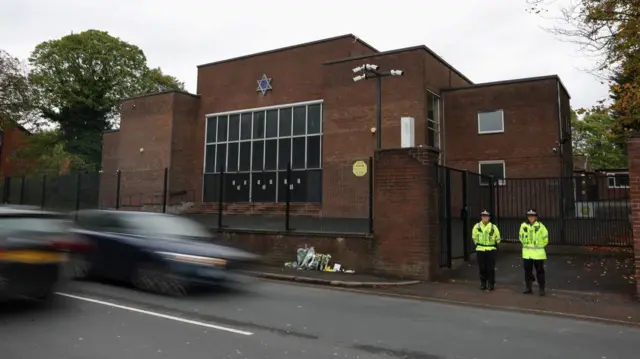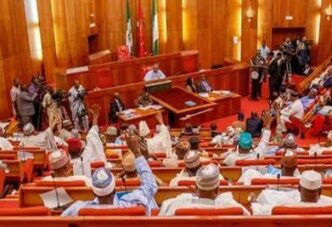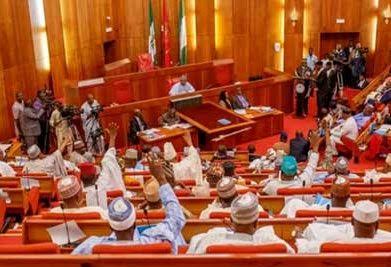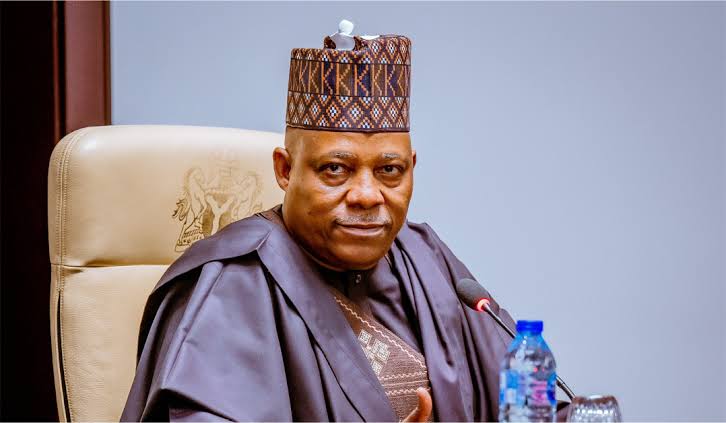The Dean, School of Environmental Studies at Yaba College of Technology (YABATECH), Dr. Adesina Aladeloba, has blamed the recurring cases of building collapse in Nigeria on poor and ineffective communication among stakeholders in the construction industry.
Gatekeepers News reports that delivering the institution’s 19th inaugural lecture titled “Communication: Why the Tower Remained Abandoned Heretofore” at the Yusuf Grillo Hall, Aladeloba said fragmented and conflict-prone project processes often stem from a lack of deliberate communication strategies from the design stage.
Using the biblical story of the Tower of Babel as a metaphor, he noted that the absence of clear communication has historically derailed human endeavours. While cost, quality, and time are the common benchmarks for project success, he said “communication breakdown and lack of team cohesion are often the silent drivers of project failure.”
“Effective communication is not just about exchanging messages; it’s about choosing the right tools, channels, timing, and tone to foster understanding and collaboration,” he said.
Aladeloba categorised communication into complete, incomplete, and absent, arguing that while incomplete communication causes setbacks, total lack of communication leads to chaos and collapse. He cited the Shannon-Weaver and SMCR (Sender-Message-Channel-Receiver) models to explain how poor encoding, wrong channel selection, and lack of feedback often create costly misunderstandings.
He lamented the human and material losses caused by abandoned and collapsed buildings, attributing many failures to “simple but overlooked communication gaps.”
To address the challenge, Aladeloba proposed reforms and digital innovations, including the adoption of his proprietary Buildcom (NWAVE) software to streamline project communication. He also called for curriculum updates and stronger industry-academia collaboration to equip future professionals with communication skills vital for sustainable development.
Beyond technical fixes, he emphasized the spiritual and philosophical dimensions of architecture, asserting that every structure reflects its designer’s intent. Citing Noah’s Ark as an example of successful project delivery through clear instructions and structured communication, he argued that failures in Nigeria’s construction sector stem more from poor communication than from funding or technical deficiencies.
“Communication is the lifeblood of any successful project. Without it, even the best plans will collapse,” he warned. “We must treat communication as a strategic asset, not an afterthought.”
The don made six key recommendations, including improving communication tools and speed, adopting predictive models, and embracing locally developed digital solutions. He also cautioned against over-reliance on foreign technology, warning that excessive data storage abroad could lead to “digital colonisation.”
In his remarks, YABATECH Rector, Dr. Ibraheem Abdul, commended Aladeloba’s insights, noting that project performance discussions often focus on cost, time, and quality while overlooking the communication practices underpinning them.
He stressed that the absence of mutual trust and shared understanding at the onset of projects frequently leads to breakdowns that threaten construction outcomes.

